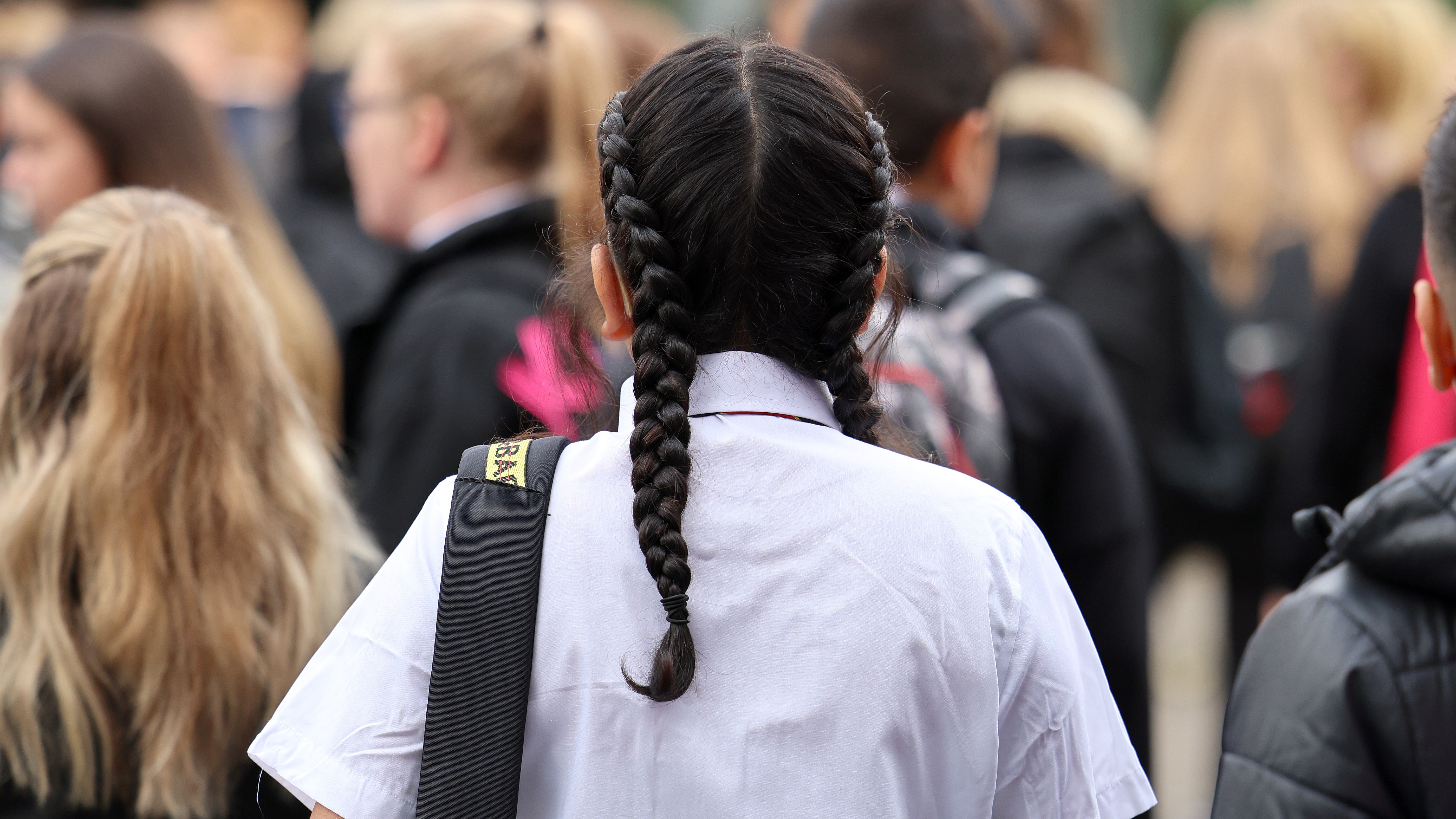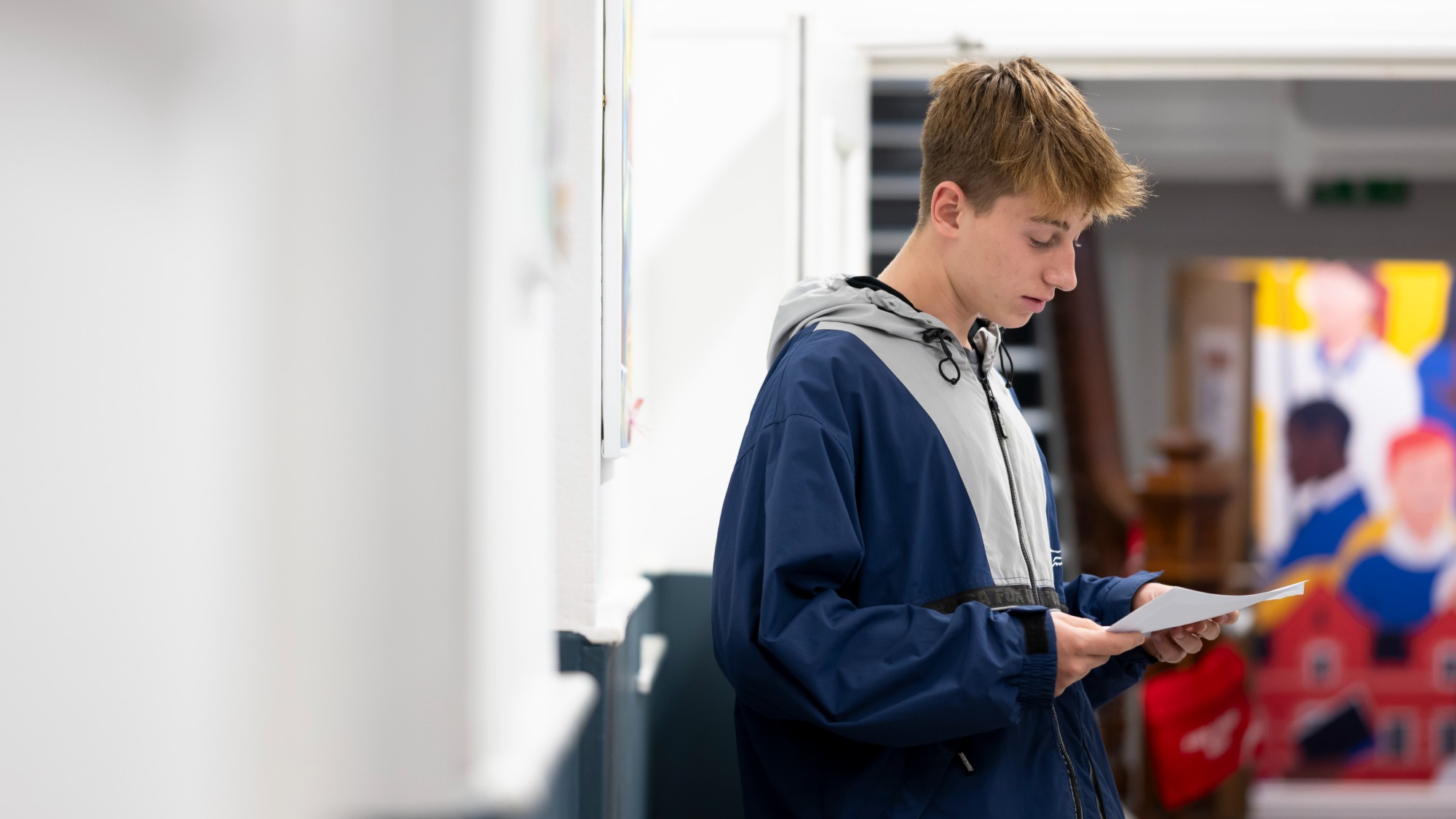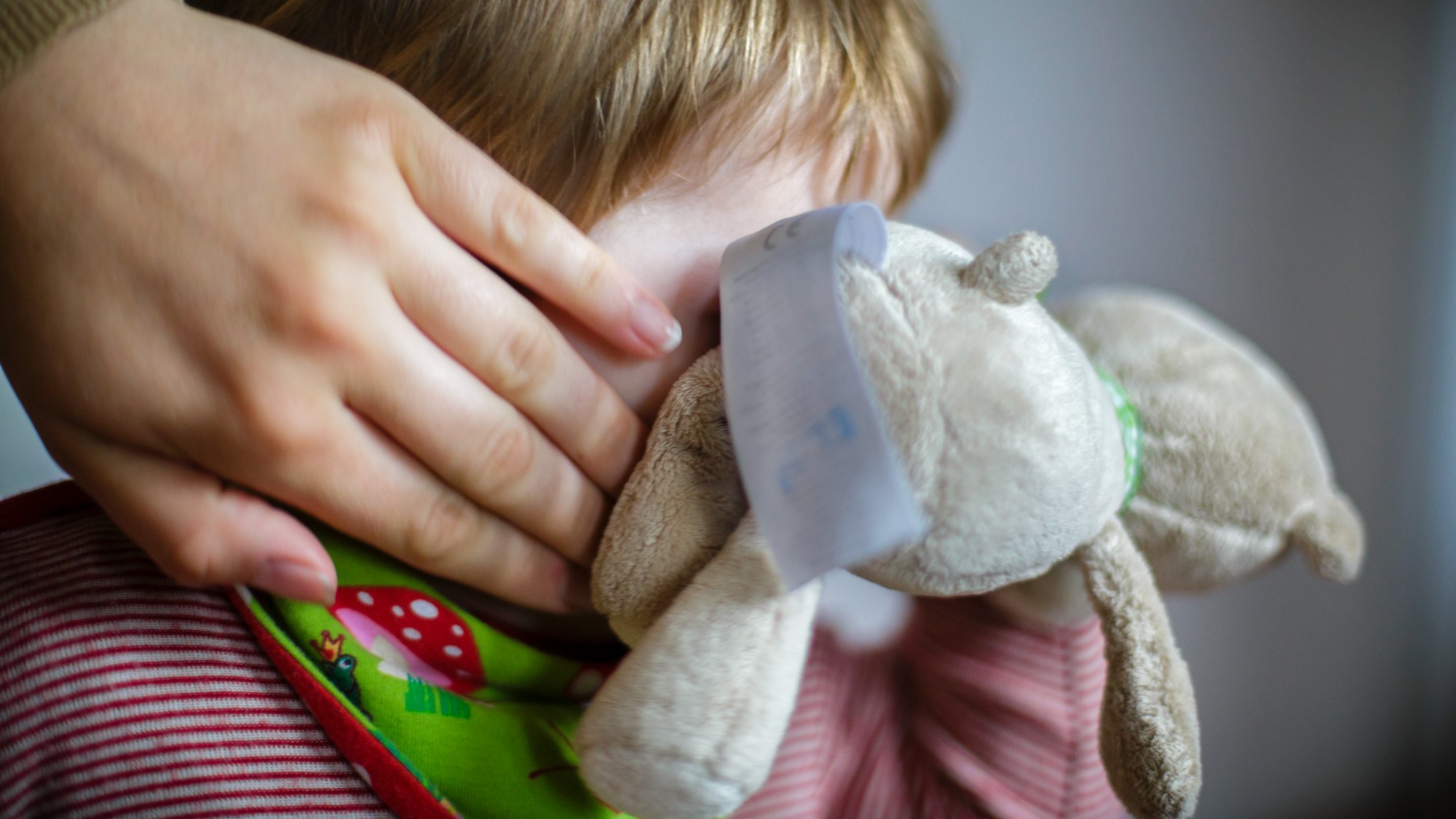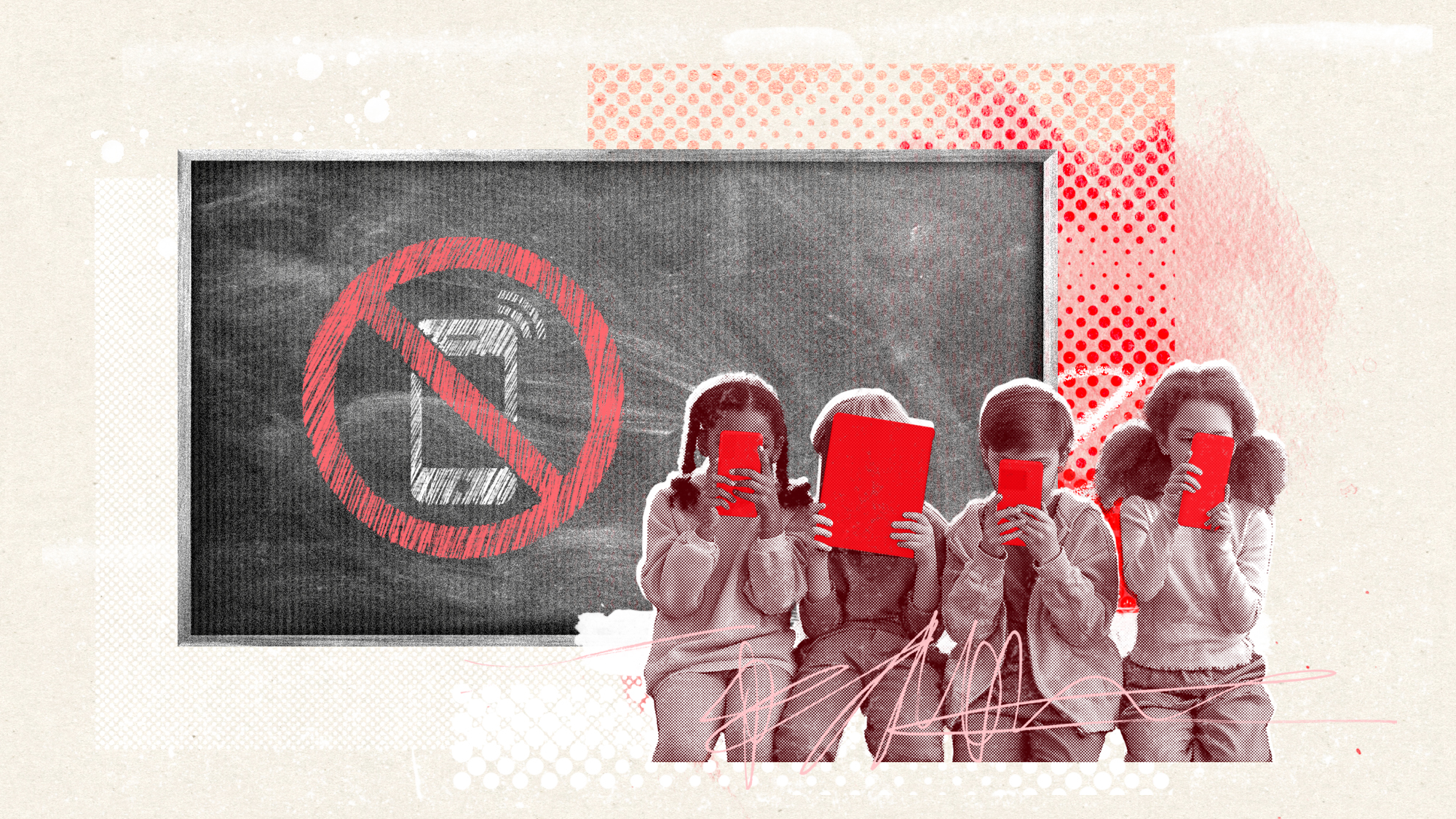How much Covid disruption will schools face this year?
Lessons could be delayed by at least a week to allow all pupils to be fully tested

A free daily email with the biggest news stories of the day – and the best features from TheWeek.com
You are now subscribed
Your newsletter sign-up was successful
Millions of school pupils are due to head back to classrooms in England and Wales as early as next week after two years of disruption due to the Covid pandemic.
While the government’s “back to school” campaign, which launched on Thursday, promises a “more normal year”, it has been branded as “naive” by teaching unions, who warn that “further disruption is inevitable”.
Delays and scepticism
The Week
Escape your echo chamber. Get the facts behind the news, plus analysis from multiple perspectives.

Sign up for The Week's Free Newsletters
From our morning news briefing to a weekly Good News Newsletter, get the best of The Week delivered directly to your inbox.
From our morning news briefing to a weekly Good News Newsletter, get the best of The Week delivered directly to your inbox.
It is not even September yet and The Times has reported that the reopening of secondary schools in England could be delayed “by at least a week” as millions of pupils are tested for Covid on-site before classes can officially begin.
The Department for Education has said schools will be allowed to stagger starting dates so that pupils can be tested twice for the virus, meaning lessons in many secondary schools are “not expected to start until the second week of the new term”, said the paper.
Education Secretary Gavin Williamson told schools in July they could remove measures taken to prevent the spread of Covid – such as face masks – thanks to the UK’s vaccination efforts. However, a Times survey of 1,200 senior teaching staff has found that many schools plan to keep some measures in place, including plans by one in five schools to stagger the start and end of the school day throughout the coming term.
Ministers have said that they “no longer recommend that it is necessary to keep children in consistent groups (‘bubbles’)”. The guidance also says that pupils aged 18 or under who are named as a close contact of someone who has tested positive for Covid-19 will no longer need to self-isolate for ten days.
A free daily email with the biggest news stories of the day – and the best features from TheWeek.com
In the last academic year, the government's policy of automatic isolation after contact with Covid-19 meant hundreds of thousands of pupils missed school due to Covid-19 – in June, a quarter of a million children missed school in a single week because of coronavirus infections, self-isolation or school closures.
The government’s latest “back to school” campaign has also faced scepticism from school union leaders, reported The Guardian. The campaign encourages school pupils to continue twice-weekly testing at home and features 18-year-old Olympic gold medallist Matt Richards telling school students that regular testing will allow them to “get back to the things you love, like competitive sports and school matches”.
But Nick Brook, the deputy general secretary of the National Association of Head Teachers, told the paper: “It would be naive to assume that things will be completely back to normal in September. Scientists are already predicting that Covid cases are likely to increase further when schools reopen and sadly we know that further disruption is inevitable.”
A taste of things to come
Scotland, where pupils have already returned to school, may “offer a foretaste of potential developments in England and other parts of the UK”, says the Financial Times. Cases of Covid-19 have more than doubled over the past week since schools went back, with a reported 4,323 cases on Tuesday – the highest daily number recorded during the pandemic so far, said the paper.
First Minister Nicola Sturgeon said in a Covid briefing that she could not “completely rule out having to reimpose some restrictions” if cases continued to rise.
Indeed, Linda Bauld, professor of public health at Edinburgh University and a recently appointed government adviser, has warned that schools are “at risk of being forced to close again” if numbers continue to rise, said The Times, with teaching unions expressing concern about the spread of the virus among school staff and pupils.
“I’m concerned there will be pressure again to close schools and everybody wants to completely avoid that,” said Bauld. “But if we do have really, really large numbers in schools, then I think that’s really tricky for the government.”
In Scotland, some restrictions remain in place, with children over 12 in schools asked to wear face coverings and remain at least one metre away from staff.
And in England, there are fears that coronavirus cases are still “too high” ahead of the return to school, said the i newspaper.
More than 35,000 people a day are testing positive for the virus, according to government data, with one health official warning that the UK had “lost its lead” on vaccinations by not approving jabs for younger teenagers quickly enough.
Professor Dominic Harrison, director of public health at Blackburn with Darwen Council in Lancashire, told the i that he expected to see “a significant spike in cases as school-aged children will be required to regularly test again”.
While the Joint Council on Vaccination and Immunisation (JCVI) advised earlier this month that all 16- and 17-year-olds should be given a first vaccine dose, the Department of Health confirmed today that no decision had been made for 12- to 15-year-olds. The BBC said “NHS organisations in England have been told to prepare for a possible extension of the Covid vaccination programme” for the younger age group, but the JCVI is yet to decide.
Professor Harrison has warned: “The UK has lost its lead in population vaccination coverage due to ‘cautious’ decision-making by JCVI on vaccination for all school-aged children 12-plus.
“The reality for that age group between now and next March is likely to be vaccination or Covid-19 – few are likely to escape exposure to the virus over the winter.”
Sorcha Bradley is a writer at The Week and a regular on “The Week Unwrapped” podcast. She worked at The Week magazine for a year and a half before taking up her current role with the digital team, where she mostly covers UK current affairs and politics. Before joining The Week, Sorcha worked at slow-news start-up Tortoise Media. She has also written for Sky News, The Sunday Times, the London Evening Standard and Grazia magazine, among other publications. She has a master’s in newspaper journalism from City, University of London, where she specialised in political journalism.
-
 What is the endgame in the DHS shutdown?
What is the endgame in the DHS shutdown?Today’s Big Question Democrats want to rein in ICE’s immigration crackdown
-
 ‘Poor time management isn’t just an inconvenience’
‘Poor time management isn’t just an inconvenience’Instant Opinion Opinion, comment and editorials of the day
-
 Bad Bunny’s Super Bowl: A win for unity
Bad Bunny’s Super Bowl: A win for unityFeature The global superstar's halftime show was a celebration for everyone to enjoy
-
 The Trump administration’s plans to dismantle the Department of Education
The Trump administration’s plans to dismantle the Department of EducationThe Explainer The president aims to fulfill his promise to get rid of the agency
-
 How will new V level qualifications work?
How will new V level qualifications work?The Explainer Government proposals aim to ‘streamline’ post-GCSE education options
-
 England’s ‘dysfunctional’ children’s care system
England’s ‘dysfunctional’ children’s care systemIn the Spotlight A new report reveals that protection of youngsters in care in England is failing in a profit-chasing sector
-
 The pros and cons of banning cellphones in classrooms
The pros and cons of banning cellphones in classroomsPros and cons The devices could be major distractions
-
 School phone bans: Why they're spreading
School phone bans: Why they're spreadingFeature 17 states are imposing all-day phone bans in schools
-
 Schools: The return of a dreaded fitness test
Schools: The return of a dreaded fitness testFeature Donald Trump is bringing the Presidential Fitness Test back to classrooms nationwide
-
 Send reforms: government's battle over special educational needs
Send reforms: government's battle over special educational needsThe Explainer Current system in 'crisis' but parents fear overhaul will leave many young people behind
-
 Education: Can public schools be religious?
Education: Can public schools be religious?Feature A Supreme Court seems ready to rule in favor of religious charter schools in Oklahoma, which could reshape public education